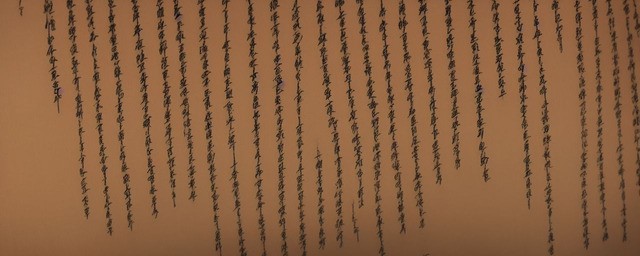
唐朝和宋朝的英语怎么读
原|2023-12-27 17:18:47|浏览:81
The Tang Dynasty was a Chinese dynasty that ruled from 618 to 907. It is often referred to as the golden age of Chinese civilization, known for its powerful military, extensive trade network, and flourishing culture. In English, the pronunciation of "唐朝" is "tahng chow."
The word "Tang" is derived from the Chinese term "Tang," which translates to "brilliance" or "splendor." This name reflects the extraordinary achievements and prosperity of the Tang Dynasty. The pronunciation of "Tang" is similar to the English word "tahng," with a soft "a" sound and a nasal "ng" ending.
The Song Dynasty, on the other hand, ruled from 960 to 1279 and was also a highly influential era in Chinese history. It is often divided into two periods: the Northern Song (960-1127) and the Southern Song (1127-1279). In English, the pronunciation of "宋朝" is "sohng chow."
The term "Song" is derived from the Chinese word "Song," which means "pine tree." This name was chosen to represent the strength and resilience of the Song Dynasty. The pronunciation of "Song" is similar to the English word "sohng," with a soft "o" sound and a nasal "ng" ending.
It is important to note that the English pronunciations of "唐朝" and "宋朝" are transliterations of the Chinese characters. The English language does not have exact equivalents for these terms, so the pronunciation is an approximation that tries to capture the sound as closely as possible.
In summary, the Tang Dynasty is pronounced as "tahng chow" in English, while the Song Dynasty is pronounced as "sohng chow." These pronunciations may vary slightly depending on regional accents and individual preferences, but they generally capture the correct sounds of the Chinese characters.
猜你喜欢
- 茶的分类及代表品种
- 六大茶类的代表名茶分别有
- 茶的类型和代表
- 六大茶叶的分类及产地
- 庙的分类及代表
- 藻的分类及其代表
- 茶的分类及代表茶品特点
- 茶的分类及代表茶
- 简述茶类的分类及其代表性名茶
- 六大茶类的分类及代表茶
- 动物分类及代表
- 糖的分类及代表
- 茶的分类及代表茶叶
- 茶的分类及代表图
- 茶的分类及代表作
- 茶器按质地的分类及代表茶器
- 茶的分类及代表名茶教学设计
- 简述茶的分类及代表性名茶
- 请写出乌龙茶的分类及代表茶
- 法国雅文邑白兰地系列
- 雅文邑白兰地介绍
- 1952年法国雅文邑白兰地
- 法国雅玛邑白兰地
- 纽波利顿獒
- 法国犬品种
- 南非獒犬的优缺点
- 波尔多獒犬寿命
- 波兰狩猎犬
- 波尔多犬和罗威纳犬对比
- 波尔多犬和杜高对比
- 世界十大凶犬
- 护卫犬排行榜前十名
- 大红袍怎么泡效果好
- 大红袍怎么泡不开
- 大红袍怎么泡茶
- 大红袍怎么泡出来没颜色
- 大红袍怎么泡不苦
- 大红袍怎么泡多久
- 大红袍怎么泡才正确的特点
- 大红袍怎么泡没有柴味儿
- 大红袍怎么泡放多少合适
- 花香大红袍怎么泡
- 大红袍怎么泡茶好
- 大红袍是怎么泡的
- 大红袍怎么泡水好喝
- 大红袍用玻璃杯怎么泡
- 大红袍怎么泡味道浓一些
- 十大排名果花茶
- 十大花茶组合排名
- 十大花茶品种大全
- 十大花茶功效
- 十大花茶销量排行榜
- 十大花茶有哪些
- 十大花茶品种
- 十大花茶推荐
- 十大花卉排行榜
- 十大花卉
- 十大花茶调理内分泌
- 九五至尊秦昊明月关山
- 红茶冲泡工艺
为你推荐






































































